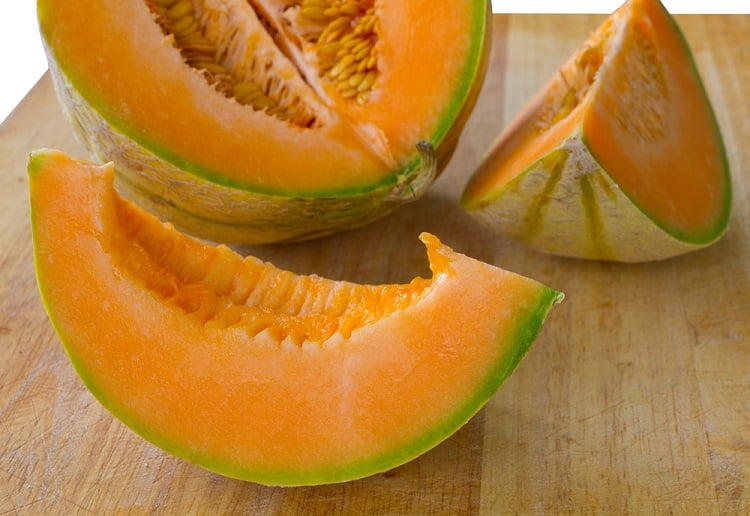The cause of numerous listeriosis cases in rockmelon has been revealed.
An investigation into a series of deaths linked to listeria on rockmelons has concluded the contaminated fruit came from a single farm in New South Wales, and the outbreak was largely caused by the weather, and dust storms, shares ABC news
Between January 16 and April 10, 22 cases of listeriosis occurred across New South Wales, Victoria, Queensland and Tasmania, which led to seven deaths and a miscarriage.
A report released on Thursday by the NSW Department of Primary Industries confirmed those cases were all linked to consumption of rockmelon packed at Rombola Family Farms in Nericon, NSW.
The report said the farm’s hygiene and sanitary procedures were “on par with or better than most other rockmelon-growing operations across Australia”.
Despite this, heavy rains in December and dust storms that followed covered the farm’s paddocks in dust, and “significantly increased” the amount of listeria on the fruit.
Listeria is a common bacteria found in most environments, but it can be dangerous for people with poor immune systems, such as small children and the elderly.
Previously on this story….
Seven people sadly died during the national outbreak linked to contaminated rockmelons.
A Victorian man in his 80s has become the fifth person to die in a listeria outbreak.
Three Victorians and two people from New South Wales have died after consuming fruit linked to a farm near Griffith, in southern NSW.
Victoria’s deputy chief health officer, Dr Brett Sutton, said the latest death had only just been linked to the outbreak after test results came back.
Sadly Dr Sutton also confirmed a miscarriage had been linked to the outbreak.
The Health Department said eight people in Victoria had been affected with listeria from the melons — four men and four women, all from high-risk groups.
Previously on this story…
A Victorian man and a Queensland woman have taken the number of confirmed cases to 17.
NSW and Victoria have both recorded six cases; there have been four cases in Queensland and one in Tasmania. The outbreak has been linked to two deaths in NSW and two in Victoria.
As a precaution, consumers particularly those who are elderly, pregnant or immune compromised who may have rockmelon already in their home are advised to discard it.
Listeria is found widely in the environment and rarely causes serious illness in the general population but for vulnerable people, such as those who are over 70, pregnant, or have diabetes, cancer or suppressed immune systems, it can be extremely serious or even life threatening.
The outbreak has been linked to a grower in Nericon NSW. The company voluntarily ceased production on Friday 23 February 2018, shortly after being notified of a potential link to illness and is working proactively with the Authority to further investigate how any contamination could have occurred in order to get back into production as soon as possible.
Any affected product is being removed from the supply chain, so consumers can be assured rockmelons currently available on shelves are not implicated in this outbreak.
Listeriosis starts with flu-like symptoms such as fever, chills, muscle aches, nausea, and sometimes diarrhoea. The symptoms can take a few days or even up to six weeks to appear after eating contaminated produce.
People at risk should consult their local doctor as early as possible should symptoms appear.
The NSW Food Authority and NSW Health will continue to work with other jurisdictions to monitor the situation.
The six NSW cases linked to consumption of rockmelon form only a portion of the increased listeriosis cases in NSW so far this year, with 15 people affected, mainly elderly with underlying health conditions.
Listeria bacteria is found in a variety of foods, including cold meats, cold cooked chicken, raw fish, soft-serve ice cream, soft cheeses and unpasteurised milk.
But the bacteria is also found in pre-cut fruit and pre-bagged salads, products that are highly popular in supermarkets and convenience stores.
Vulnerable people are reminded to avoid all foods that pose a risk of listeriosis, including:
Pre-cut melons such as rockmelon or watermelon
Pre-packed cold salads including coleslaw and fresh fruit salad
Pre-cooked cold chicken, cold delicatessen meats, pâté
Raw seafood, uncooked smoked seafood (e.g. smoked salmon)
Unpasteurised milk or milk products, soft cheeses (e.g. brie, camembert, ricotta or blue-vein)
Sprouted seeds or raw mushrooms.
Last year authorities issued an urgent warning after the popular fruit nearly killed her unborn baby – Read more.
A mother from Queensland also shared the heartbreaking moment she was told she’d contracted listeria and passed it to her unborn baby. Read more.
Share your comments below.
Read more:
- Tips on avoiding listeria
- Mum warns after popular fruit nearly killed her unborn baby
- Mum shares heartbreaking story of losing her baby due to Listeria




















7:56 am
10:16 am
3:26 pm
7:22 pm
8:05 pm
10:59 am
8:55 am
12:39 am
9:30 pm
9:13 pm
2:53 pm
7:16 pm
8:17 am
3:31 pm
1:36 pm
12:52 pm
4:32 pm
12:13 am
10:59 am
9:21 am
- 1
- 2
- »
Post a commentTo post a review/comment please join us or login so we can allocate your points.